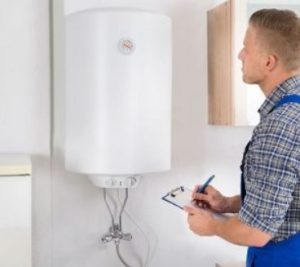A properly functioning hot water cylinder is essential to ensure a constant supply of hot…
Check the operation of the water heater
We all take running hot water for granted. From showering to cleaning dishes to laundry, our water heater caters for many of our daily activities. We don’t think about it until it breaks down. Even if your water heater seems to be working, failure is always a terrible inconvenience and a catastrophic disaster! Read the article and find out how to check the correct functioning of the water heater and the first signs that indicate that it is about to fail.
Check the operation of the water heater
 Watch out for these signs that your water heater is about to fail:
Watch out for these signs that your water heater is about to fail:
1. How long has the water heater been in your house.
If you’ve been using your water heater for more than 8 years, we believe it’s time to change it. To see the production dates, look for the serial number on the manufacturer’s sticker. The first letter indicates the MONTH in which the company manufactures the water heater.
For example, the letter B is the second letter of the alphabet and represents the second month, February. The next two digits indicate the YEAR code. For example, 08 would indicate it was made in 2008. You need to replace it!
2. Rusty water
If you find rusty water from the hot taps in your home, it can be a sign that the inside of the water heater is rusting and it is likely to start spoiling soon.
3. The water heater makes noises.
Over time, sediments build up and eventually harden. When this happens, you can often hear a rumbling or rattling sound from the water heater.
4. Drops and moisture.
In case you notice that moisture or water leaks around the heater, it is a sign that there may be a fracture and a leak from the tank. A catastrophic disaster could be just around the corner!
5. Be proactive.
Checking these indicators will help you ensure that there is still hot water available if you are the last in the morning stampede to your bathroom.
Choose your next water heater
Today’s water heaters are far superior to their predecessors. They are optimized, corrosion resistant and designed with controls and sensors to maximize efficiency. Efficiency makes heated water available more quickly and requires less energy (thus lowering bills). Choosing the right water heater can be tricky. The following can help you evaluate alternatives.
3 general types of water heaters
Storage tanks. Traditional 50-gallon water tanks have been around for decades. Natural gas, generally power these versatile appliances. They are equipped with a thermostat that regulates the temperature of the water inside. Whenever the temperature changes from the designated setting, the heater comes into action to bring the temperature back to the desired level. It is also equipped with safety valves to prevent overheating and release excess pressure.
Tankless water heaters. These devices use heating coils to provide hot water on demand. Since the water is heated only when it is needed, an oversized tank is not necessary. This saves energy and costs in water heating. Electricity or natural gas can power these – A gas-powered unit requires additional ventilation, and the electrical unit may require electrical upgrades.
Heat pump boiler. They are an efficient and ecological alternative for the production of hot water. These sophisticated devices in fact take the thermal energy from the ambient air. A heat pump mounted on the top of the tank efficiently feeds the tank through an electronic compressor.
We help homeowners
The experienced plumbers we work with uniquely suits to help you determine the solution that best fits the needs of your home and family. We have been operating in this sector for several years, and we operate throughout the territory of TTT and also in the surrounding areas for the repair and maintenance of water heaters. Even in the case of replacement, we only recommend water heaters, models and brands that have proven to have the least number of problems and emergency calls. For the best plumbing, emergency electrician and locksmith services in Gloucester, trust us!
Call 01452682927

Comments (0)